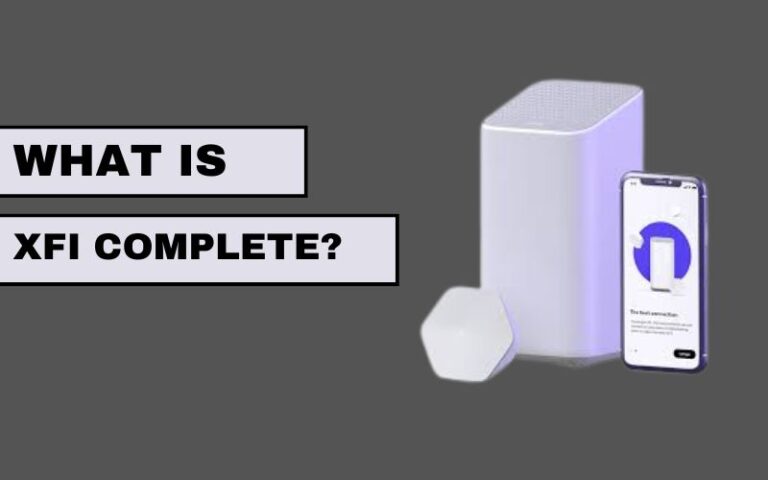
Welcome to the mind-bending world of quantum computing! In this article, we will embark on a journey into the fascinating realm of quantum physics and explore how quantum computing is poised to revolutionize our world. But be prepared for a wild ride, as we’ll throw in some unexpected interjections, humor, and wit to keep you on your toes.
Additionally, while we delve into the quantum cosmos, it’s worth noting that another transformative technology, robotic process automation (RPA), is quietly making waves in the business world. RPA involves using software robots or “bots” to automate repetitive and rule-based tasks, streamlining operations, and enhancing efficiency across various industries. So, as we navigate the quantum mysteries, keep an eye out for how RPA is adding its unique flavor to the tech landscape.
What is Quantum Computing?
Quantum computing is like classical computing’s cooler, quantum cousin. While classical computers rely on bits that can be either 0 or 1, quantum computers use qubits. And these qubits can exist in a superposition, meaning they can be both 0 and 1 simultaneously. If that doesn’t make your brain do a quantum somersault, I don’t know what will!
The Current State of Quantum Computing
The application of quantum computing is moving from theory to reality. Even though the area is still in its infancy, it is gaining traction because to increased funding and awareness of its ability to provide solutions for challenging issues. Still, there are technical obstacles to overcome, such maintaining error correction and having restricted qubit quality. While they are not yet able to fully replace laptops, current quantum computers are quite good at doing certain tasks that are very challenging for conventional computers.
For scientific advances in the simulation of molecules and materials, as well as the optimization of challenging tasks in finance and logistics, this makes them especially intriguing. Quantum computing has a promising future ahead of it, with continued research anticipated to realize its full potential in the years to come.
What Does Quantum Computing Actually Do?
It is a technological marvel that can be likened to a maestro in the orchestra of computation. Unlike classical computers that flip bits like a light switch, quantum computers dance with qubits in a quantum ballet. These qubits, thanks to their superposition and entanglement properties, can perform complex calculations that would stump even the most powerful classical computers.
In essence, quantum computing excels at tackling problems that are virtually impossible for traditional computers, making it a powerful tool for tasks like simulating quantum systems, optimizing complex logistics, breaking down cryptographic barriers, and exploring the depths of scientific and mathematical mysteries. It’s as if it possesses a key to unlock the doors of the universe’s most enigmatic puzzles.
Quantum Computing vs. Classical Computing
There are two different paradigms for processing information: quantum computing and classical computing, each with special advantages and disadvantages.
1. Basic Units:
Classical Computing: Binary bits, which can only exist in two states—0 or 1—are the basic unit of information used by classical computers.
Quantum computing: Qubits, which make use of the laws of quantum physics to exist in several states concurrently through phenomena like superposition and entanglement, are the building blocks of quantum computers. Because of this, qubits are able to represent and process data fundamentally differently from classical bits.
2. Capacity for Processing:
Classical Computing: By carrying out instructions one after the other, classical computers are excellent at jobs requiring sequential processing.
Quantum computing: By utilizing parallel processing capacity, quantum computers may solve complicated calculations tenfold quicker than conventional computers for some kinds of problems and explore large solution areas.
3. Problem-Solving Capabilities:
Classical Computing: Tasks requiring simple algorithms and dependable data structures, like database management and arithmetic computations, are ideally suited for classical computers.
Quantum computing: Quantum computers are especially good at breaking cryptographic algorithms, modeling quantum systems, solving optimization issues, and investigating intricate scientific phenomena that are too computationally demanding or impractical for classical computers to handle.
4. Stability and Error Handling:
Classical Computing: The predictable and dependable performance of classical computers is a result of their stable hardware architectures and well-established error correcting algorithms.
Maintaining qubit coherence and reducing mistakes brought on by decoherence and outside noise are two of the issues faced by quantum computers. Research is currently being conducted in the fields of error correction and fault tolerance to get around these restrictions and increase the dependability of quantum computation.
Applications of Quantum Computing
From simulating complex quantum systems for drug discovery to revolutionizing cryptography, the applications of quantum computing are mind-boggling. Quantum computers will transform industries like finance, healthcare, and logistics. They’ll also help us explore the mysteries of the universe and simulate phenomena that are currently beyond our reach.
The Quantum Computing Race
It’s a race to quantum supremacy! Companies like IBM, Google, and startups like Rigetti are battling it out to create the first quantum computer that can solve problems classical computers can’t touch. We’re on the brink of a quantum computing revolution, and the stakes are sky-high!
Quantum Technology Challenges
As we march into the quantum future, we must navigate a few quantum potholes. Quantum computers are incredibly delicate and sensitive to their environment. One stray photon or a sneeze in the lab, and your quantum computation can go haywire. Plus, there’s the challenge of error correction and scaling up these quantum beasts.
Quantum Computing FAQs
Q1: Can I play video games on a quantum computer?
A1: Unfortunately, no. Quantum computers are not your next gaming console. They excel at specific tasks, but Angry Birds is not one of them.
Q2: Will quantum computing make my password obsolete?
A2: It’s a possibility. Quantum computers could break current encryption methods, so expect a quantum-resistant upgrade soon.
Q3: When can I buy a quantum computer for my cat?
A3: Not anytime soon, unless your cat is secretly a quantum physicist.
Q4: Is quantum computing going to replace classical computers?
A4: Not entirely. Quantum computers are fantastic for certain tasks, but your trusty laptop isn’t going anywhere.
Q5: Is quantum computing the future?
A4: Yes, quantum computing is undeniably the future. While it’s still in its infancy, the potential it holds to revolutionize industries, solve complex problems, and drive technological advancements is immense.
Conclusion
In a world where bits can be 0, 1, or both, quantum computing is rewriting the rules of computation. It’s a thrilling and perplexing journey into the unknown, and the possibilities are boundless. As we venture further into the quantum frontier, be prepared for more surprises, more wit, and definitely more quantum craziness. The quantum revolution is here, and it’s going to change the world in ways we can’t even imagine.







